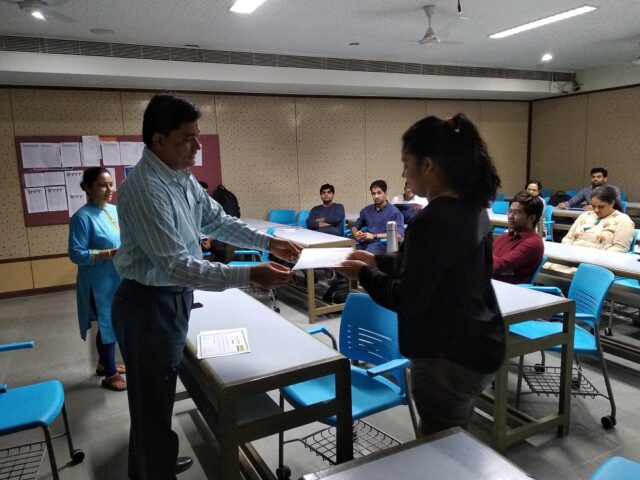
Doctoral students are among the busiest on campus, yet effective time management may help them stay organized, lower their stress levels, and produce more.
Graduate students must learn to deal with the unique problems that graduate school presents, including unpredictability, interruptions, lengthy and open-ended projects, juggling work and personal obligations, and obstacles to motivation.
In this post, a seasoned professional offers five tried-and-true time management advice for graduate students.
Before enrolling in graduate school, time management is a crucial consideration because it encompasses pursuits like work, home, leisure, dating, hobbies, and spirituality.
It is crucial to consider time management because many students who enroll in graduate programs have professional credentials and are working.
Ph.D. Scholars – Time Management Tips

Several methods can help you finish writing your dissertation faster. Writing services like IvoryResearch provide researchers with well-written and non-plagiarized dissertations.
However, the period before you start penning your work is the most difficult. This is when you have to do your research, go through innumerable resources, and manage the rest of your life.
Therefore, here we have gathered a number of suggestions that will help you manage your Ph.D. life better—
1. Know Your Milestones
Finding your important study milestones and when to complete them is the first step in good time management. Setting reasonable objectives and ranking tasks according to priority and urgency is required.
Setting realistic deadlines and objectives for yourself can also help you remain on track and prevent procrastinating.
You may achieve this by making a milestone calendar that helps you stay on track and notes any approaching deadlines.
The first step is understanding and accepting that you cannot do all of the reading you feel is necessary, as well as all of the experiments and fieldwork you think is necessary.
Your reading list and research objectives will be much easier to maintain after you accept this and specify the specifics of your study.
2. Identify Your Restrictions
The disease of perfectionism can impede a Ph.D. student’s advancement. It can take many forms, such as the desire to turn in the ideal project, proposal, or thesis draught.
Students must submit their projects and compositions on time and with their best effort in order to prevent this.
Social media can waste time since it consumes an excessive amount of a student’s time.
Multitasking is the enemy of productivity and time management since it divides attention between the numerous activities at hand, resulting in either subpar performance or failure to finish them by the deadline.
It is crucial to have a clear plan for how one’s next day will go to increase productivity and manage time as effectively and efficiently as possible.
This will enable them to dedicate time to crucial and unimportant activities and prevent wasting time.
3. Start Prioritizing What’s Important

To increase productivity and effectively manage their time, Ph.D. students should list their top priorities monthly, weekly, and daily.
Depending on the situation, priorities shift from day to day, week to week, or month to month.
Ph.D. candidates should set aside certain times for each assignment and avoid being distracted during such times.
Also, pausing and exercising can boost Ph.D. students’ general well-being and allow them to regain lost energy.
Ph.D. candidates should stay adaptive and flexible and ask their mentors and peers for advice and assistance.
They should also know the appropriate times to concentrate on their jobs, families, and education to balance their conflicting obligations. This clarity of priority makes management of all the competing obligations simpler.
4. Break Your Goals Into Achievable Units
You may stay motivated and focused by breaking down work into smaller, more manageable pieces, ensuring that you get steadily closer to your objectives.
Also, asking for guidance from your supervisor and peers may help keep you on track and assist you in overcoming any obstacles that may arise while pursuing your Ph.D.
You’ll better manage your time if you prepare your week in advance.
Make time to put down your weekly itinerary when a new week begins. Your calendar should outline the exact hours for courses, dissertation preparation, study, and other crucial tasks.
Take pauses, set aside time for self-care activities, and leave time in your calendar for important pursuits like exercise, socializing, hobbies, and relaxation.
Maintaining a well-planned schedule may boost productivity and lower stress while pursuing academic goals.
5. FInd The Right Guide
It is important for you to find a supervisor with a track record of achievement who can offer insightful advice and meaningful perspective.
Reading feedback from previous students is crucial since it might help you relate to them personally.
Also, since this relationship should remain for a number of years and guide you through the Ph.D. life, compatibility between the two of you is crucial.
Next, look for a supportive supervisor. This connection should endure for many years, and your supervisor will guide you through the Ph.D. life.
6. Use Reminders And Task Managers

Several applications and internet tools are available today to help you efficiently manage your time.
There are applications for task management, calendars, and reminders that keep you organized and remind you of forthcoming commitments.
Moreover, some applications provide tools like productivity analysis and time monitoring to help you spot areas where you can increase your productivity and maximize your time.
Anybody trying to increase productivity and remain on top of their duties should consider using task management tools.
They can assist you with time management, deadline setting, and task reminders.
Thanks to collaboration capabilities, several applications allow you to exchange assignments and due dates with coworkers or team members.
Task management applications are useful for anybody trying to increase productivity because of these capabilities.
7. Use Your Free Time
Dead time is the time lost during the day due to ineffective or fruitless activity.
It’s critical to pinpoint its origins and put productivity and efficiency-boosting measures in place to reduce it.
You can make the most of downtime by reading books, practicing mindfulness, or listening to instructive podcasts.
Establishing clear project priorities and deadlines can aid in time management and prioritization.
More productivity may be achieved quickly by breaking big projects into smaller, more manageable jobs. Taking pauses during the day can also increase productivity and improve general health.
One may transform unproductive time into worthwhile opportunities for self-improvement by making the most of these moments.









